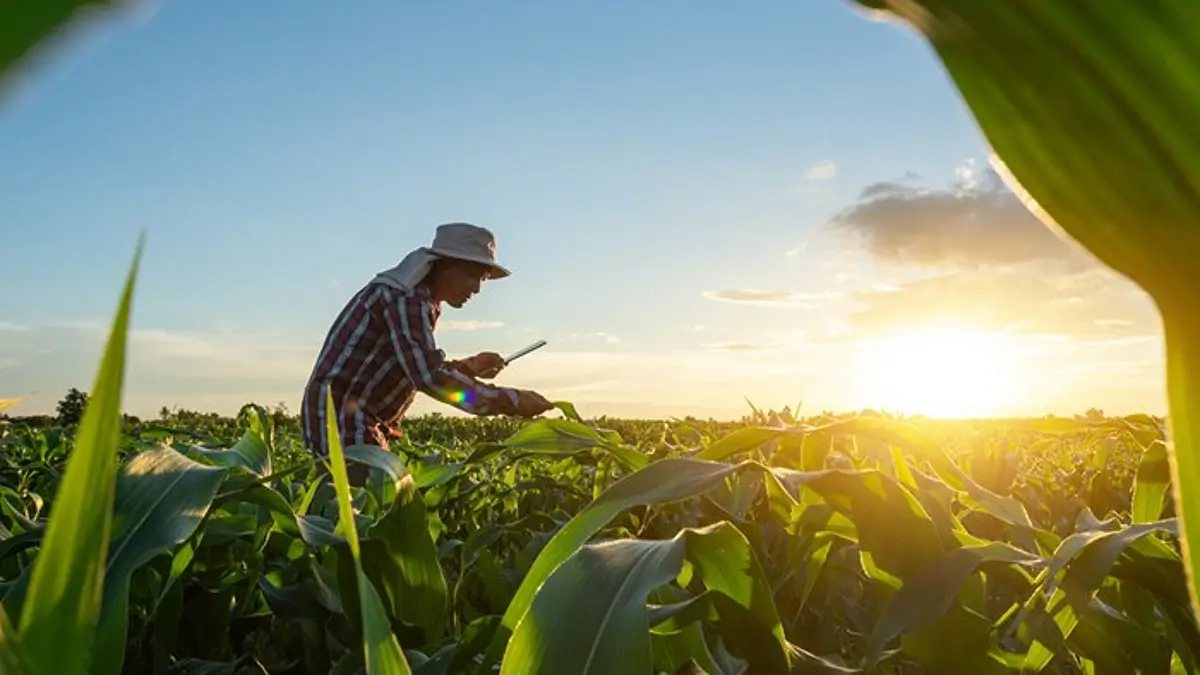Federal Minister for National Food Security Rana Tanveer Hussain held a meeting with the Canadian High Commissioner to Pakistan Tarik Ali Khan to discuss strengthening bilateral cooperation in agriculture and promoting trade in agri-products.
Both sides reaffirmed their commitment to building a stronger and mutually beneficial partnership in agriculture, food safety, and technology transfer.
The minister highlighted that Pakistan and Canada enjoy long-standing relations rooted in mutual respect and development cooperation. He said agriculture remains a priority area where both countries can complement each other’s strengths.
Citing Pakistan’s large food market and growing agri-industrial base, he noted that the country’s population of over 250 million represents a major opportunity for Canadian investment in agricultural technology, processing, and value addition.
He said Pakistan aims to diversify edible oil imports by reducing reliance on palm oil—currently valued at over $4 billion annually, and shifting towards canola and soybean oils, which are healthier and more environmentally sustainable. He added that the government is promoting domestic canola cultivation to boost farmer income, encourage import substitution, and develop local processing industries, supported through technology transfer and market facilitation.
Referring to trade facilitation measures, Hussain informed the envoy that the Ministry of Climate Change has approved 43 GMO events, with final notification in process, enabling further clearance of GMO canola imports from Canada. He assured that all procedures are aligned with international biosafety and food safety standards to ensure smooth and secure trade.
He appreciated Canada’s offer to host a delegation from Pakistan’s Department of Plant Protection to visit Canadian laboratories and inspection facilities, saying such exchanges would help build confidence and pave the way for lifting the moratorium on GMO canola imports.
He also proposed collaboration in hybrid seed development, livestock breeding, embryo transfer, and feed formulation, and invited Canadian participation in joint ventures for agricultural machinery manufacturing. He sought Canada’s technical support for finalizing Pakistan’s BSE negligible risk dossier and advancing its Foot-and-Mouth Disease (FMD) control program, which would open high-value meat export markets for Pakistan.
Hussain further appreciated ongoing coordination with the Canadian Food Inspection Agency (CFIA) on the Veterinary Health Certificate for live animal imports and cooperation in the export of day-old chicks and hatching eggs. He emphasized the importance of CFIA certification to expand market access for Pakistan’s halal gelatin, sheep casings, and processed chicken, adding that Pakistan aims to increase exports of safe and high-quality halal food products.
The High Commissioner commended Pakistan’s growing agricultural potential and efforts to promote sustainable farming and food security. He said Canada values its partnership with Pakistan and sees strong potential for trade expansion in oilseeds, pulses, cereals, and edible oils. Emphasizing Canada’s high biosafety standards, he expressed confidence that greater regulatory cooperation would enable the resumption of GMO canola imports and deepen bilateral trade.
READ MORE: Pakistan Missing Nearly $60 Billion in Untapped Export Potential: World Bank
He invited Pakistan to participate in the 19th Annual Canadian Summit on Food Safety (April 8–9, 2026) and confirmed that a high-level Canadian delegation will attend the Pakistan Edible Oil and Seed Exporters Conference in January 2026. The High Commissioner also shared Canada’s success in food processing and agribusiness, particularly in French fries, frozen vegetables, and value-added products, offering technical collaboration to enhance Pakistan’s agro-industrial capabilities.
The minister welcomed the proposals and suggested forming a Joint Working Group (JWG) to follow up on certification, market access, and technical collaboration. He reaffirmed Pakistan’s resolve to expand agricultural trade and partnerships with Canada, especially in technology transfer, food safety, and sustainable resource management.
Both sides agreed to maintain close coordination through regular consultations and exchange of delegations to further strengthen agricultural and economic ties between the two friendly countries.









